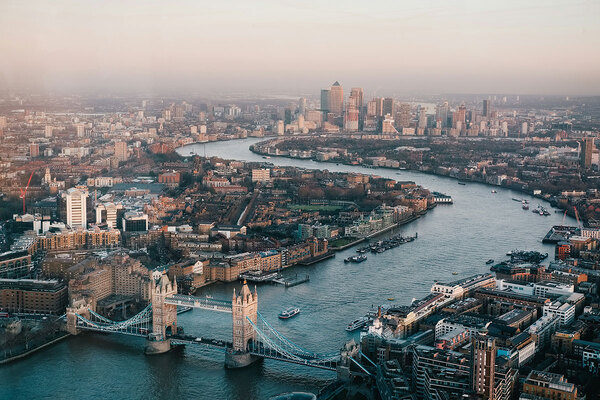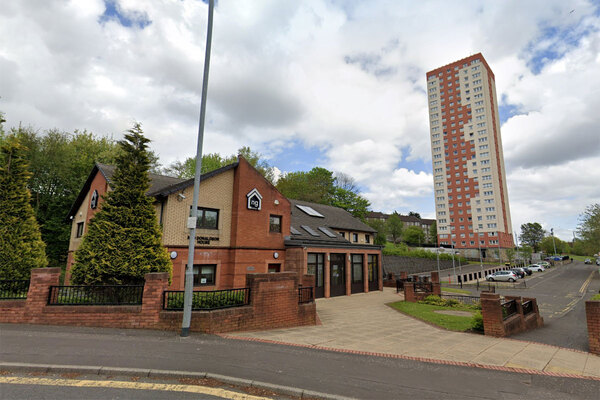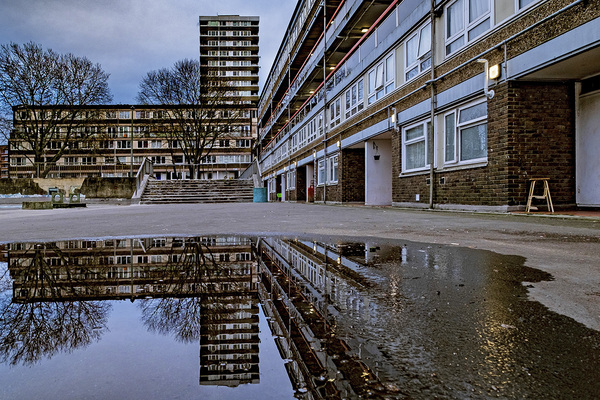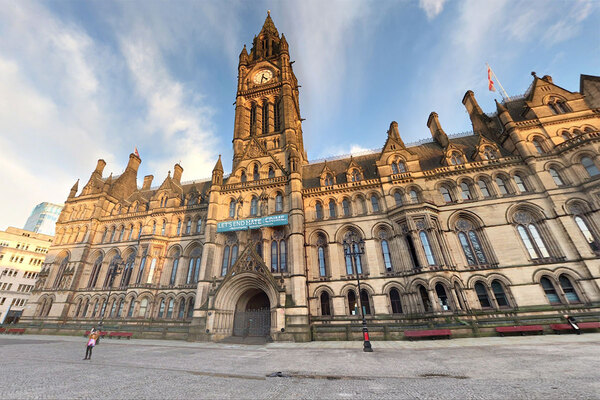You are viewing 1 of your 1 free articles
 Jules Birch
Jules BirchMinisters face more housing questions than they can answer amid Brexit distractions
Jules Birch reports on events in parliament yesterday as ministers took a break from Brexit to take questions about homelessness and fire safety
In the brief lull in the Brexit chaos, the politics of housing just about continues as normal at Westminster.
The first Housing, Communities and Local Government Committee (HCLG) questions of the year was dominated by two all-too-familiar issues – homelessness and fire safety – while the HCLG committee inquiry into reform of the building regulations heard from the main expert and the minister.
First up in the main chamber was what the government is doing to reduce death rates among homeless people, with housing secretary James Brokenshire saying that every death is “one too many”.
Given the 597 deaths recorded in 2017, an increase of 24% in five years, his script about £100m for the Rough Sleeping Strategy and £1.2bn for homelessness prevention, let alone £5m for colder weather, did not exactly sound convincing.
Labour MPs pressed him on services for mental health and addiction services, and called for the suspension of the Right to Buy and got vague assurances, plus the hoary line that “this government has built more council houses in their time than in 13 years of the last Labour government”.
“Mr Brokenshire’s script about £100m for the rough sleeping strategy and £1.2bn for homelessness prevention… did not exactly sound convincing”
Conservatives asked for action to ensure that all councils act on homelessness prevention, specific measures to help people leaving the armed services and priority for drug and alcohol services. There was even time for arch-Brexiteer Andrew Bridgen to use the brief time between European hostilities to praise North West Leicestershire’s new council houses.
But the main event was the confrontation between Mr Brokenshire and his Labour shadow.
“We cannot stop homeless people dying if we do not grasp the reasons why it is getting worse,” said John Healey. “So why does the secretary of state think that the number has risen in the past five years?”
Cue some bluster – “understandable and rightful concern”, “certainly not hidden”, “complex issues” – before an acknowledgement that:
“We also need to look at what we can do in terms of other issues, such as social policy, where changes have been made and to look at the evidence to ensure that we are making a difference and eradicating rough sleeping, preventing people from becoming homeless and ensuring that the most vulnerable are well supported.
Mr Healey accused Mr Brokenshire of “sheer irrelevance”:
“People are dying on the streets and the government is ducking the hard truth that their decisions on hostel funding, on housing benefit, on social housing investment and on protections for private renters are the root causes of the homelessness crisis. With the first widespread winter snow forecast this week, there are still areas of this country where no extra emergency accommodation will be available. Will the secretary of state think again?”
Mr Brokenshire shook his head, protesting that he takes the situation “extremely seriously – it is one of my priorities” but refused to engage with the wider structural issues raised by his Labour opposite number.
After pointing to the additional accommodation and support workers that are part of the rough sleeping initiative, it was back to the Conservatives’ preferred territory of ‘issues of health, addiction and mental health’.
The other main housing issue was fire safety and cladding as ministers fielded questions from MPs with leaseholder constituents still facing huge bills for remediation work.
The response so far from ministers has been vague noises about freeholders and developers “doing the right thing”, “not ruling anything out” and promises of enforcement action by local authorities that it is still not clear will work.
With MPs from both main parties raising cases where the exhortations are not working and leaseholders still face huge bills – Premier House in Edgware, New Providence Wharf in Poplar, Northpoint in Bromley – this issue is not going away but that was already coming across loud and clear from two different Commons debates and Prime Minister’s Questions last week.
That plus broader concerns about fire safety and the government’s approach came across all too clearly at the HCLG committee later as it heard from Dame Judith Hackitt, former chair of the independent review of the building regulations and fire safety, and housing minister Kit Malthouse.
Dame Judith phrased her answers extremely carefully and said it was “a matter of some regret” that the government had taken seven months to announce it would implement her recommendations in full but added that “good progress” was now being made.
The committee was among those who criticised her review for failing to recommend a ban on combustible materials but now that the government has acted, attention has turned to any number of gaps in that approach.
Dame Judith faced questions about whether the ban should have been retrospective, whether it should apply to other types of buildings and those below 18m and the issue of non-aluminium composite material (ACM) dangerous cladding.
There was a big question about the need for guidance on other systems such as zinc cladding but that we need to stop trying to second guess what the construction industry is doing and hold it to account.
She said the press had missed the key point in her report about safety case reviews being required for all buildings.
And she added the further safety issue of non-combustible cladding that may still be a safety hazard because it was incorrectly installed.
Asked if “Grenfell two is in the post”, Mr Malthouse said there was “significant progress” in the public and private sectors.
He based his answers on two main propositions: the combustibles ban on new buildings and interim measures that he claimed mean residents are safe in “100%” of existing buildings no matter what their remediation status.
“The committee pressed Mr Malthouse again and again on existing buildings”
Of the 42 private blocks where remediation plans are still unclear, “all but three have less than 20% of their surface area clad”.
But the committee pressed Mr Malthouse again and again on existing buildings and he faced a series of questions about non-ACM cladding, both in general on research by Rockwool identifying that more than 1,600 buildings could be dangerous and specifically on zinc cladding.
The minister said that testing of other sorts of cladding will start in March at the Building Research Establishment. If the results show it is as dangerous as ACM then it would have to be removed as well.
On the new powers for local authorities, questions from committee members revealed that progress may not be as smooth as he would like.
MPs questioned whether private owners could be compelled to remove cladding and Labour’s Tanmanjeet Singh Dhesi said there was no guarantee that councils could recover the money if they stepped in and did the work.
He asked if the minister was aware of any local authorities that had gone ahead but Mr Malthouse said he did not know.
On fire safety, as with homelessness, the minister and the government continue to face more questions than they can answer.
Away from his day job, though, he’s been busy with what’s been dubbed the ‘Malthouse Compromise’, an alternative to the backstop that is claimed to have the support of Brexiteers and Remainers.
As abnormal service is resumed in the House of Commons, it may be one more sign that the real political attention is elsewhere but if he can fix Brexit…
Jules Birch, award-winning blogger











